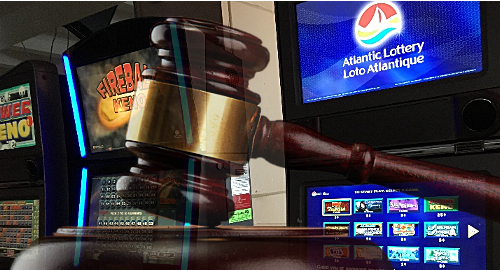 Video lottery terminals (VLT) are headed to court in Canada’s Atlantic provinces, and the case could spell trouble for VLT operations across the country.
Video lottery terminals (VLT) are headed to court in Canada’s Atlantic provinces, and the case could spell trouble for VLT operations across the country.
On Monday, the CBC reported that the Newfoundland and Labrador Court of Appeal had rejected efforts by the Atlantic Lottery Corporation (ALC) to block a class action lawsuit brought by opponents of the ALC’s VLT operations in Canada’s four maritime provinces.
The lawsuit, which was launched in 2012 and certified as a class action last year, alleges that VLTs are “inherently deceptive, inherently addictive and inherently dangerous when used as intended.” The lawsuit further claims that VLTs violate Canada’s Criminal Code because they don’t fit within its criteria for slot machines, lotteries or other ‘fair games of chance.’
The lawsuit claims VLTs employ “deceptive” algorithms that are intended to produce “cognitive distortions” regarding a customer’s chance of winning a prize. The lawsuit says these algorithms are simply a technologically updated version of the ruses employed by street hustlers offering ‘three-card monte’ games.
The lawsuit further alleges that VLTs employ “subliminal priming” to create “a dangerous dissociative mental state, wherein players cannot make rational decisions to continue to play or not.”
The two plaintiffs at the heart of the lawsuit, retirees Douglas Babstock and Fred Small, could be joined by as many as 30k other VLT gamblers in the class action. If successful in proving that VLTs violate the Criminal Code, similar lawsuits could be launched against other provincial gambling monopolies across the country.
The ALC has the option of appealing the ruling to Canada’s Supreme Court but has yet to indicate whether it will exercise this option. The ALC launched its first VLTs in 2006 and now operates nearly 6,300 of the machines in local bars and restaurants. The machines provided revenue of C$439m (US$327m) in the Crown Corporation’s most recent fiscal year, representing more than half of total revenue in the period.
In neighboring Quebec, the Loto Quebec gambling monopoly began reducing its complement of VLTs last year, with a plan to reduce the total number of installed machines from 12k to less than 10k.